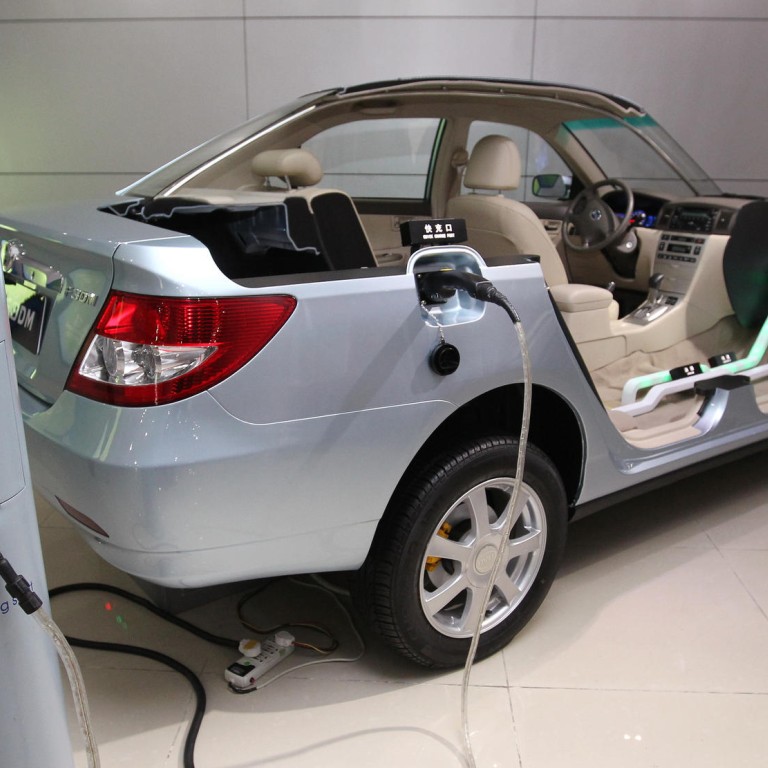
Carmakers turn to public sector
Firms delay sales of new-energy vehicles to consumers amid wait for new round of subsidies
New-energy vehicles may be the answer to the worsening air quality in the mainland's major cities, but makers of electric and plug-in hybrid cars are delaying their sales plans in the consumer market in anticipation of a new round of government subsidies for buyers of these vehicles.

But after the policy ended in December last year with no renewal announcement, carmakers like BYD are focusing their efforts on developing the public transport market first.
"We are still waiting for a new round of government policies [on new-energy vehicles]," said Liu Xueliang, BYD's general manager of Asia-Pacific car sales. "But to use them in the public transport sector would be our first priority."
BYD is not the only carmaker that hopes to break into the public transport sector with its new-energy vehicles. Rivals Nissan Motor and Ford Motor are also tapping into the market with their own solutions.
According to the China Association of Automobile Manufacturers, 84 per cent of the 27,432 electric vehicles sold in the past two years were taxis or buses, while only 4,400 were bought by individuals.
BYD, a local pioneer in electric vehicles, sold only 2,400 such cars last year, compared with the 456,000 petrol cars it sold, although chairman Wang Chuanfu said earlier that 2013 would be a breakthrough year for the sale of new-energy vehicles.
"We aim to sell 6,000 of our e6 electric cars and 2,000 of our K9 electric buses this year," Liu told the media during a press conference on Friday, meaning BYD sought to nearly quadruple its sales of electric vehicles this year.
Overseas markets would be a major source of growth, he added, and BYD had already secured contracts for the supply of electric taxis and buses from offshore buyers. It was also bidding for similar contracts in South America and Europe and was in talks with the Thai government, which plans to introduce electric vehicles in the public transport sector.
Liu also said the firm would hold a press conference next month on its plan to introduce 45 electric taxis into Hong Kong.
The Warren Buffett-backed company, which issued a profit warning for its results last year, saw sales jump 85.2 per cent to 55,800 units last month, largely due to a low-base effect. While showrooms were only beginning to reopen after the Lunar New Year holidays, Liu said BYD was optimistic about sales for this month.
